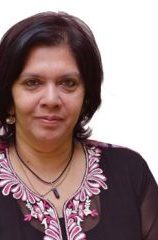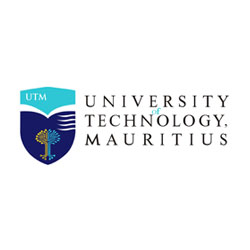In conversation with
Dr Sharmila Seetulsingh-Goorah
Director General | University of Technology, Mauritius

FDI Spotlight: Since your appointment as Director General, what are the accomplishments that you are proudest of obtaining?
Dr Sharmila Seetulsingh-Goorah: The first one is the creation of the first public School of Health Sciences in Mauritius. It is an achievement that after just one year the school is operational with seven academic staff, a head of school, and a new biomedical laboratory underway. UTM had two medical colleges affiliated to the university without any kind of internal monitoring for those colleges and students have suffered a lot in the process. The creation of the school has enabled UTM to be recommended for listing as a medical institution by the Medical Council of Mauritius and the Medical Council of India, which is a big achievement for the country at large as this in line with Government vision to develop Mauritius into a medical education hub.
In addition, we have reviewed a number of regulations to increase the recognition of prior learning and the flexibility of learning. Before I came to UTM students who failed more than three modules were just withdrawn from the university with no consideration given to whether they had passed overall or not although there was a credit system in place. I was very surprised at that, so we changed that regulations. Students can now proceed to the next level provided that their overall mark is above or equal to 40%.
We have also put in place measures to increase the personal development and employability of our graduates with close ties with industry. I’m pleased to say that in spite of a very limited budget we have been able to recruit over 1,300 students for this academic year.
What collaborations do you have with hospitals and clinics to favour health education?
Dr Sharmila Seetulsingh-Goorah: We have collaborations with the Ministry of Health and Quality of Life because we can’t conduct any kind of medical education without clinical training. Under the programs that we are running, we have coordinators both at the level of UTM and the level of the Ministry. But there can be a lot of red tape in getting approval for clinical training. However, this is partly understandable given that health education must not in any way compromise patient safety, care and confidentiality.
There is still a lot to be developed and UTM would like to be a partner along with the authorities to develop enabling mechanisms to favour health education. There is a need for harmonisation between the stakeholders involved in clinical training because health education is one area where international universities would like to step in and use Mauritius as a platform for their internationalisation.
What key strategic plans do you have in place to further cherish international partnerships?
Dr Sharmila Seetulsingh-Goorah: Our aim is to help put technology at the service of society through our courses and research and development projects. Innovative technologies can help create wealth for the nation as well as being useful in the promotion of medical tourism in Mauritius with input from international investors. We would also like to help promote the internationalisation of UTM. We realise that we can’t do it alone, so we want to form strategic partnerships with local and international universities. Over the past 15 months we have developed two international strategic partnerships. One is with Imperial College London together with Open University of Mauritius for the offer of a Masters in Public Health. Hopefully we can take that a step further to develop a Diploma in Family Medicine. We developed another collaboration with Banaras Hindu University (BHU), one of the top universities in India to help with quality assurance of our medical programmes amongst other projects.
How many of your lecturers have PhD level qualification?
Dr Sharmila Seetulsingh-Goorah: We have many of them, but we still need to increase that number. You need that critical internal mass of PhD holders to drive research and bring the institution up to an acceptable level of research output. We have reduced our MPhil and PhD fees to help boost capacity building in research. We are also reviewing the monitoring and examination procedures to avoid unnecessary delays in awards of research degrees. There are systems in place to allow a reduced workload for staff engaged in MPhil/PhD studies. We are looking at empowering our teaching staff because we believe that research and training go hand in hand and improves the quality of the overall learning experience.
How is UTM taking advantage of what overseas universities are offering in terms of joint academic research and free PhDs for staff?
Dr Sharmila Seetulsingh-Goorah: For the time being we have a system of external examination but not really partnerships in terms of project supervision and staff or student exchange programmes. This is something we will have to look into. Hopefully with what we have developed with Imperial College and BHU we will have more of these collaborative ventures at the level of MPhil and PhD training but also at the level of teaching and staff research.
Experienced and well-recognised international universities are coming to Mauritius with a long-term commitment. How do you see the influx of such universities impacting the educational sector and public universities in particular?
Dr Sharmila Seetulsingh-Goorah: First of all, we have a different market because most of the parastatal universities are non-fee paying or the fees that students pay are relatively low. UTM is a fee-paying institution but fees are very low compared with universities like Aberystwyth or Middlesex. So we are not in direct competition.
We certainly welcome the establishment of international universities in Mauritius and we are open to collaborating with them. We have had discussions with Middlesex University on potential collaborations in health sciences. At the end of the day the winner is not just a single institution, it’s the country at large. I don’t think we should see any institution as a competitor, we should see them as an opportunity to collaborate. I think it’s a benefit in both directions because it helps international companies to better understand the local educational culture.
What can Mauritius learn from the success of Malaysia as a regional higher education hub?
Dr Sharmila Seetulsingh-Goorah: I think we need to look more closely at the operational aspects in practice and not just the end result. For instance, we will never be able to go towards proper internationalisation if we don’t have residential campuses. You will have noticed that none of the public universities have campuses but that’s the first thing private universities would look at. Internationalisation of higher education involves more than just delivery of education. Besides campuses we need to think about what constitutes a student learning experience in Mauritius. We need to develop a culture of collaboration and consultation amongst education providers and other stakeholders. We also need to focus on quality rather than quantity. There are steps to follow before we reach a desired standard but we are on the right track.
Given the fact that you are the first woman to become the Director General of UTM, how have you approached your example as a role model for female students?
Dr Sharmila Seetulsingh-Goorah: I do not make a difference between female and male students as far as serving as a role model is concerned. A role model should be one for anyone who can draw lessons and inspirations from what he/she has achieved.
My main passion is being a mother. Transmitting knowledge and values to my son. I can’t transmit them to other young people if I cannot transmit to my own child. As well as that I am passionate about education to which I devoted 25 years of my life already. The training and values that you receive are of no long term benefit if you do pass them on to the next generation.
The most important value that has enabled me to go through all these different roles in my life is being genuine and dedicated in every one of them. When you are at home, as a mother, wife or daughter. When you are at work, in my case now as a CEO and previously as an academic, be genuine. I came into a system that had its own culture. It was time for reflection and change to help the University into its next phase of development. Unfortunately you can’t bring about changes without upsetting some of the people. But I am happy to say that the majority of people have followed because they have managed to see that the changes brought were selfless and only in the best interest of the institution.
Never see the role of Director General as being over and above everybody else. If you don’t get to know the system and understand people’s constraints, you will never understand why they are operating in the way they are operating. Of course you have to accept that no amount of genuineness will change the ill-intentioned. But that’s life.
I’m a bit of a philosopher in the sense that we come with nothing, we go with nothing. While you go through this life, whatever opportunities come your way you should use them for the benefit of humanity and not just your own.
